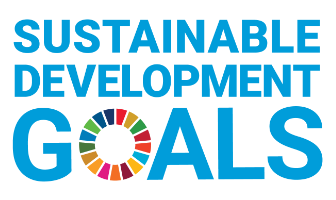FAQ's about MATCH in General
With the world’s youngest and fastest-growing population, Africa is an untapped source for talent that can strengthen European companies’ workforce, brand and knowledge of local markets and consumers.
MATCH is a 36‑month initiative funded by the European Union (EU) aimed at providing highly skilled talents to private sector companies whose needs for qualified staff cannot be satisfied by the offer available on the EU labour market.
By joining MATCH, companies from Belgium, Italy, The Netherlands and Luxembourg will be supported with the sourcing and recruiting of African talents from Senegal and Nigeria, two countries offering a surplus of qualified professionals. In addition to the job placements, MATCH will also implement complementary activities such as skills development, capacity building and knowledge sharing between the participating EU and African countries.
The International Organization for Migration (IOM) leads the overall implementation of the project.
Project partners support efforts in each of the four EU member states, including EUROCHAMBRES (regional), Agoria (BE), VDAB (BE), VOKA (BE), Unioncamere Piemonte (IT), IMS (LU), NABC (NL).

- Tackling structural labour shortages experienced on the European labour market due to democratic and socio-economic developments (e.g. ageing population, skill mismatch, digitalisation) by tapping into talent pools in Africa.
- Skills development: selected candidates will be offered various training organized by the individual companies
- Knowledge transfer: labour migrants will also be invited to engage in projects in their home country to facilitate skills and knowledge transfer to their communities of origin.
- Peer-to-peer capacity building: MATCH will facilitate the exchange between employer organizations and employment agencies in the four participating EU Member States and their counterparts in Senegal and Nigeria. Employer organizations and employment agencies in Nigeria and Senegal will benefit from capacity building training on labour market analysis, matching of labour supply with demand and exploring labour opportunities abroad. This will facilitate the roll-out of future labour mobility schemes benefiting countries of origin and destination alike.
The MATCH project focuses on filling structural labour shortages. In the Netherlands, companies suffer shortages primarily in the ICT, technology and digitalization sectors. The MATCH project is however also available to support companies active in other sectors.
Low cost - The MATCH project enables companies to recruit highly qualified candidates at low cost while complying with high ethical recruitment standards. The MATCH project does not charge any fees for launching a recruitment process. This is a considerable gain for companies given that recruitment fees required by commercial recruitment schemes tend to range between 15 – 20 per cent of a candidate’s first annual salary and can go as high as 30 per cent for hard-to-fill vacancies1
High quality - The MATCH project will provide high-quality matches of talent through selective advertisement, advanced skill assessment technologies and a network of reputable talent management providers.
Flexibility - The MATCH project offers flexibility to companies by introducing them to a qualified candidate in a short timeframe. This allows companies to adopt flexible hiring strategies that correspond to their needs and changing market demands. The project also supports the development of distance work arrangements at a time where international mobility is limited due to the COVID–19 pandemic. There is no legal obligation for companies to recruit from the pre-selected candidates if the selected profiles do not meet company talent needs or standards.
CSR standards - By participating in the MATCH project, companies can invest in the human capital of the young candidates and support skill development through training activities. During work placements, the MATCH project will facilitate candidate engagement with diaspora organisations and candidate participation in projects that support development in Africa. The MATCH project offers an opportunity to promote gender balance as we aim to select a minimum of 30 per cent of female candidates.
1.Source: NOS article "Zo veel vraag dat recruitmentbureau recruiter inschakelt voor recruiter"
Costs – Following the shortlisting of candidates, companies will bear the cost of their own final selection process (arranging additional tests, face-to-face/virtual interviews, etc.) and relocating successful candidates (e.g. flights, visas). Companies will remunerate candidates in accordance with standards that are imposed by the host country’s national legislation.
Obligations – Companies will sign a letter of commitment that outlines expectations associated with work performance, remuneration, working conditions, training requirements, living conditions, adherence to national legislation and adherence to IOM project conditions. Letters of commitment will be drafted on an individual basis to ensure that personalized expectations are reflected.
The aim of the MATCH project is to identify a total of 210 vacancies in the four targeted EU member states and to fill these with candidates from the two African countries. In the Netherlands, the aim is to fill 80 vacancies. Priority will be given to female candidates in order to reach at least 30 per cent female participation.
Within the three-year duration, the MATCH project will only support companies in four EU member states (The Netherlands, Belgium, Luxembourg, the northern region of Piemonte in Italy) and candidates who are based in the two African countries (Nigeria and Senegal). Possible expansion to other countries will be explored for future phases of the project.



